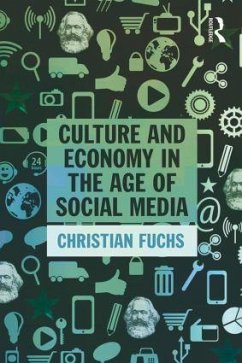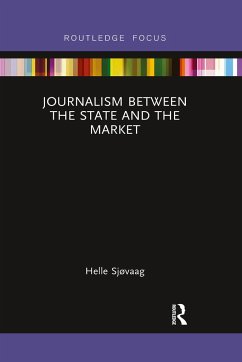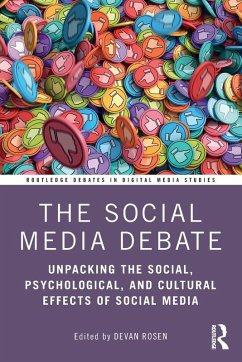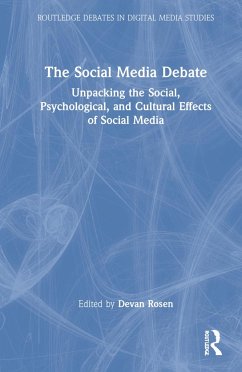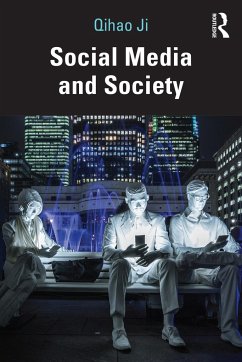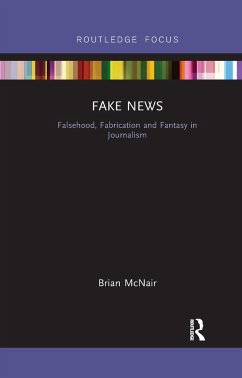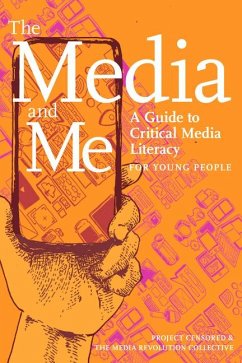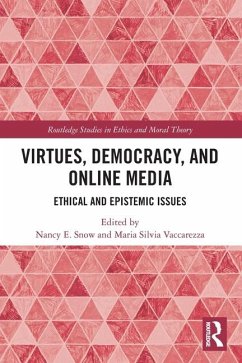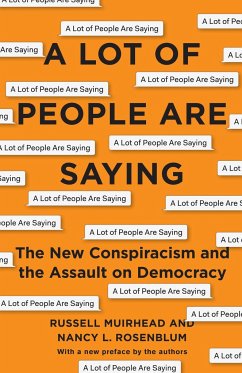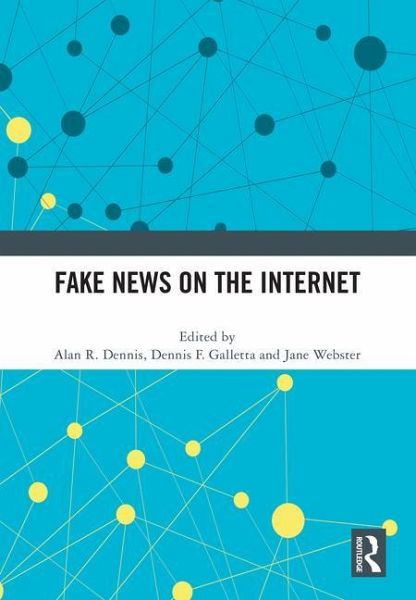
Fake News on the Internet
Versandkostenfrei!
Versandfertig in 6-10 Tagen
154,99 €
inkl. MwSt.

PAYBACK Punkte
77 °P sammeln!
This book provides a review of current research in fake news and presents six new empirical research studies examining its impact.Fake news has garnered immense public attention following the 2016 Brexit referendum, three US elections, the 2019 Indian lynchings, and so on. Fake news undermines public life across the globe, especially in countries where journalistic practices and institutions are weak. Some fake news is created to spread ideological messages or to create mischief, whereas other fake news is created for profit. Research shows that fake news spreads farther, faster, and more broa...
This book provides a review of current research in fake news and presents six new empirical research studies examining its impact.
Fake news has garnered immense public attention following the 2016 Brexit referendum, three US elections, the 2019 Indian lynchings, and so on. Fake news undermines public life across the globe, especially in countries where journalistic practices and institutions are weak. Some fake news is created to spread ideological messages or to create mischief, whereas other fake news is created for profit. Research shows that fake news spreads farther, faster, and more broadly than true news and has had major societal impacts. All signs indicate that it will get worse as political activists, scammers, alternative news media, and hostile governments become more sophisticated in their production and targeting of fake news. This book features leading scholars who provide a review of the current research and presents six new empirical research studies examining its impact. Some of this research shows how inventions designed to reduce fake news can actually have the opposite effect, and instead act to increase the spread of fake news. Other research takes a longer-term perspective, by measuring or inserting emotions into headlines, allowing us to examine some of the roots of fake news behaviors for future study. This shows how challenging the fake news phenomenon is to solve.
Fake News on the Internet will be a key resource for academics, researchers, and advanced students of Media Studies, Research Methods, Information Systems, Communication Studies, Management, Cultural Studies and Sociology. The chapters included in this book were originally published as a special issue of Journal of Management Information Systems.
Fake news has garnered immense public attention following the 2016 Brexit referendum, three US elections, the 2019 Indian lynchings, and so on. Fake news undermines public life across the globe, especially in countries where journalistic practices and institutions are weak. Some fake news is created to spread ideological messages or to create mischief, whereas other fake news is created for profit. Research shows that fake news spreads farther, faster, and more broadly than true news and has had major societal impacts. All signs indicate that it will get worse as political activists, scammers, alternative news media, and hostile governments become more sophisticated in their production and targeting of fake news. This book features leading scholars who provide a review of the current research and presents six new empirical research studies examining its impact. Some of this research shows how inventions designed to reduce fake news can actually have the opposite effect, and instead act to increase the spread of fake news. Other research takes a longer-term perspective, by measuring or inserting emotions into headlines, allowing us to examine some of the roots of fake news behaviors for future study. This shows how challenging the fake news phenomenon is to solve.
Fake News on the Internet will be a key resource for academics, researchers, and advanced students of Media Studies, Research Methods, Information Systems, Communication Studies, Management, Cultural Studies and Sociology. The chapters included in this book were originally published as a special issue of Journal of Management Information Systems.



